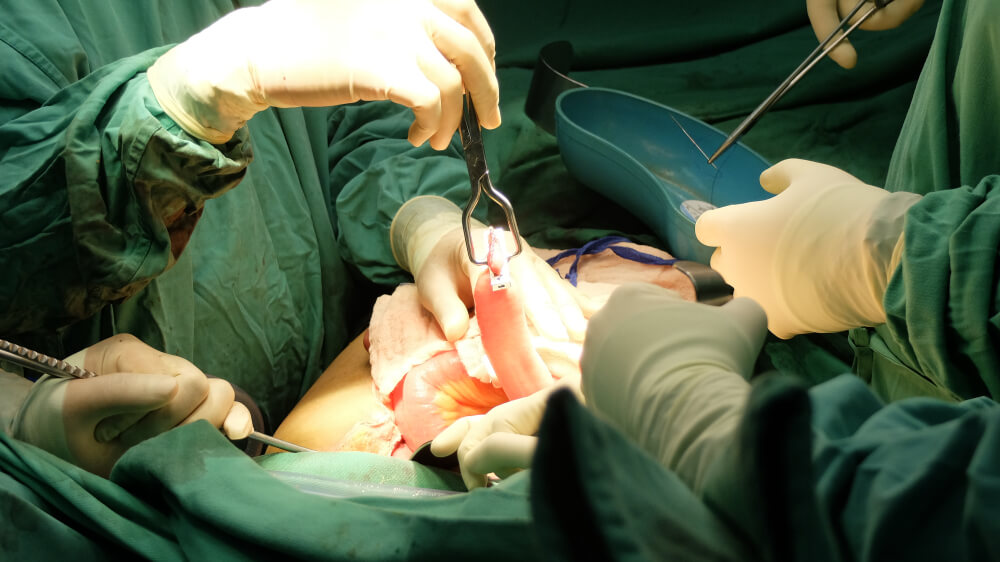Human beings ought to live healthily. However, when diseases, injuries, and health complications come knocking, the only option is to seek medical attention. Health issues concerning the colon, anus, and rectum have become rampant in the modern world.
The medicine field is vast, and grasping the meaning of all words in this field is impossible. The main question that must be lingering in your mind is what is colorectal surgery? Well, this is a portion of medicine that deals with anus, rectum, and colon disorders.
It is basically a procedure used in the treatment of colon cancer. The procedure is available almost everywhere. You can even get colorectal surgery in Palm Beach County.
Types of Colorectal Surgery
Early-stage colon cancer can only be effectively treated through surgery. The operation that the patient gets, however, depends on three factors: where the cancer is in the colon, the aim of the surgery, and the stage of cancer. The patient’s colon needs to be empty before the surgery is performed. Besides laxatives and/or enemas that remove the stool from the colon, the patient is put on a strict diet to ensure no stool is in the colon.
There are several types of colorectal surgery, some of which are discussed below:
Endoscopic Surgery
A pliable tube attached with a camera at the edge and a scope are the equipment used for this operation. There is fewer pain and discomfort with this surgery, and the healing process is quick because the colorectal surgeon does not make major incisions.
Colectomy
This is an operation done to remove part of or the whole large intestines. There are three subtypes of this colorectal surgery:
- Polypectomy – here, the colorectal specialist uses a colonoscopy to abolish a malignant polyps or polyp from the colon or rectum.
- Segmental Colectomies – this is where the part carrying the disease is cut out by making a vertical incision at the abdomen’s center.
- Total Colectomy and Total Proctocolectomy – this is the operation to remove the entire large intestines. An illness like familial polyposis requires the surgeon to remove the whole colon and rectum.

Ileal Pouch Anal Anastomosis
This is a procedure whereby a pouch is created at the tip of the small intestine and attached to the anus. This operation is beneficial for the restoration of stool function in patients who have their entire colon removed. It is also known as J-Pouch.
Hemorrhoidectomy
Hemorrhoids can be treated using medications and simple steps, such as a change in lifestyle. However, if home remedies do not work for you, then it is time to consult a colorectal surgeon. Hemorrhoidectomy is a procedure performed by making incisions around the anus to remove the hemorrhoids. This is the most effective and permanent solution to hemorrhoids.
Procedure for prolapse and hemorrhoids, also called stapled hemorrhoidectomy, involves stapling back the hemorrhoidal tissue back to its initial position and then cutting off any tissue that’s causing discomfort. This process is done using a circular stapling device. However, the doctor may decide to use rubber band ligation, which is done by placing a rubber band around hemorrhoid to destroy the tissue and inhibit blood supply.
Colostomy
During this procedure, the colorectal surgeon makes a wall on the patient’s abdominal wall and pulls one end of the large intestine through it. It is a surgical procedure that changes how the body excretes waste and fecal matter. A stoma is a place where the hole was made. Colostomy can either be permanent or temporary.
A temporary colostomy is used in instances where the colon will need to be placed back to its original position at a later date. A permanent colostomy is for chronic illnesses, such as diverticular and Crohn’s diseases.
Internal Sphincterotomy
This is the treatment for anal fissures, which occurs when the rectum’s mucus lining develops some tears. Medications and dietary alterations can be effective in treating fissures. Nevertheless, if they do not work on you, then Internal Sphincterotomy is your only option.
The internal sphincter is a muscle that opens and closes to let out stool from the body. This procedure aims at cutting or stretching this muscle to make it weak temporarily and allow it to heal. Local anesthetics or spine anesthetics are used to numb the sphincter area or the entire lower body, respectively, during this surgery.
Rectopexy
Rectopexy is a surgical procedure for rectal prolapse treatment. Using laxatives and stool softeners, and diet change can be a cure for patients with mild rectal prolapse. If the condition is severe, the patient may be an applicant for the rectopexy procedure.
Are there any Side Effects of Colorectal Surgery?
People are different, and so are their bodies. Experiencing any side effects after the surgery is determined by your general health before the operation and the severity of the condition that is being treated. Overall, the following are some of the side effects that one may experience after colorectal surgery:
- The patient may feel some pain after the surgery, requiring them to use pain relievers for a few days.
- For a few days, the patient may be required to take a limited amount of liquids and avoid solid foods. This will give the colon enough time to heal completely.
- Anesthesia or how the bowel was handled during the operation could lead to your bowel taking a long time before it resumes working perfectly. Such an instance is called ileus .
- Sometimes, the connections joining the ends of the colon may not hold together well, and this could cause some leakages. Besides making the belly feel hard, such an occurrence can cause a lot of pain, discomfort, and fever. Such a leak could also lead to infections, and more surgical procedures may be needed to fix such an issue.
- Adhesions occur when the scar tissue on the patient’s abdomen causes tissues and organs to stick together.

How do you Tell if you Need Colorectal Surgery?
There are several signs and symptoms to look out for when determining whether you have colorectal cancer or not. The symptoms may not show immediately, but if they do, they are likely to be one or more of the following:
- Rectal bleeding. The blood that comes out during rectal bleeding is bright red.
- Unintentional weight loss.
- Feeling weak and exhausted.
- Cramps and abdominal pains are also signs to watch out for.
- Blood droplets that make your stool appear black or dark brown.
- Bowel habits alterations, such as diarrhea, nausea, or constipation, which last more than just a few days.
Diagnostic Tests for Colorectal Cancer
Regular check-ups help colorectal specialists to detect cancer early, identify, and remove polyps and tissue growth on the colon’s or rectum’s lining. Some of the methods used for testing are:
- Colonoscopy – This is the use of a long, flexible tube with a camera attached at the tip to help the surgeons examine the whole colon.
- Manometry – It is used to test the anal/rectal area’s sensation, rectum’s elasticity, and anus’ tone at rest, voluntary squeeze, and anorectal reflex.
- Fecal Occult Blood Test – This is performed to check for blood in the stool.
- Defecating Proctogram – This is a procedure to check the mechanics applied in rectum emptying.
- Ultrasound – the sound waves created by the ultrasound probe inserted in the anus are converted and projected on a video monitor.
- Fecal Immunochemical Test – This is a more recent test to find blood in the stool.





